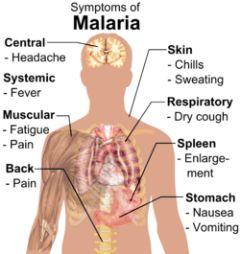Efficiency of Malaria vaccine declines over time: study
March 23, 2012 (NAIROBI) – The efficiency of the RTS,S vaccine, designed to protect humans from the malaria parasite, varies with exposure to the disease and fades over time, a new study shows.
 Researchers from KEMRI-Wellcome Trust Research Programme and Oxford University carried out the follow-up study on the vaccine in Kenya.
Researchers from KEMRI-Wellcome Trust Research Programme and Oxford University carried out the follow-up study on the vaccine in Kenya.
The vaccine, which was first formulated in the 1980s in Belgium, was reportedly designed to stimulate the immune system to defend the body against the Plasmodium Falciparum malaria parasite, as soon as it enters the bloodstream or infects the liver.
“The findings of the study will help to inform which populations are likely to benefit most from the vaccine candidate,” Wellcome Trust said in a statement.
“They also have important implications for the design of future clinical trials of this and other vaccine candidates and highlight the importance of long-term follow-up studies for assessing vaccine efficacy.”
The study reportedly involved 447 children in Kilifi, Kenya, who were part of an earlier phase two trial to assess the safety and efficacy of the vaccine candidate. According to the study, of the 447 children, 320 completed four years of follow-up.
“The new findings on long-term follow-up of an earlier phase two study reveal that the vaccine efficacy dropped from 43.6 percent protection against malaria in the first year to zero by the fourth year after vaccination,” it said.
Initial results from larger ongoing phase three studies showed that the candidate RTS,S vaccine reduced malaria over 12 months of follow-up by approximately half in young children and one-third in infants, it added.
“Despite the falling efficacy over time, there is still a clear benefit to the vaccine candidate. Many of the children will experience multiple episodes of clinical malaria infection, but overall we found that 65 cases of malaria were averted over the four-year period for every 100 children vaccinated,” said Phillip Dejon, a research fellow at the KEMRI Wellcome Trust Programme.
He added that researchers now need to look at whether offering a vaccine booster can sustain efficacy over a longer period.
According to the statement, the study also shows that relative vaccine efficacy declines with increasing exposure to malaria, from 45.1% among children with below-average exposure to 15.9% among children with above-average exposure to malaria.
“We need to consider whether relative efficacy or absolute number of cases averted is the more informative measure. In any case, these are important findings that will help to inform which populations are likely to benefit most from the vaccine,” said Ally Olotu, lead author of the study.
He said the ongoing phase three study will provide further insights to the vaccine’s efficacy in different settings of malaria exposure and also includes an assessment of a booster dose to sustain efficacy over time.
Malaria remains the leading cause of illness and death among children in Africa, with a child reportedly dying from the disease every minute. Latest figures show that at least 1.4 billion people live in regions of stable malaria transmission worldwide.
In Sudan malaria remains a major public health problem, with an estimated 7.5 million cases resulting in 35,000 deaths per year, according to the UN Development Programme (UNDP).
In South Sudan the disease is endemic, with malaria a significant contributing factor to the country’s high infant mortality rate – the fourth highest in the world.
(ST)
